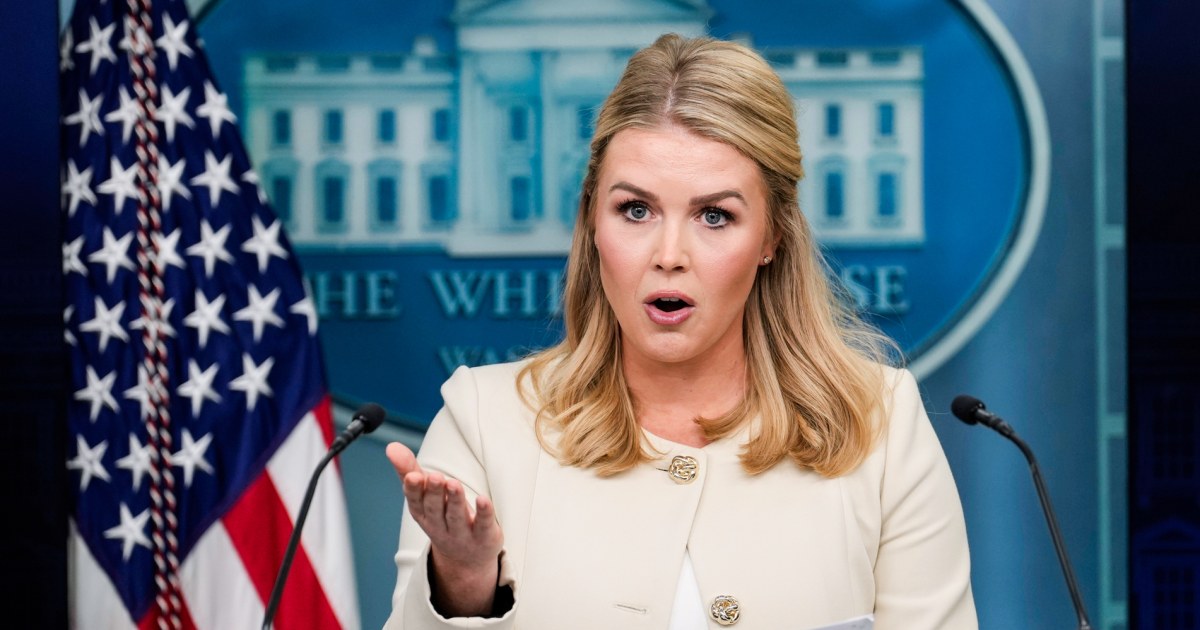White House Under Fire: A Judge's Fact-Check Sparks National Debate
The White House is facing intense scrutiny following a recent court ruling that directly contradicts several key statements made by administration officials. This "judge's fact-check," as it's being widely dubbed on social media, has ignited a national debate about transparency, accountability, and the credibility of government pronouncements. The fallout extends beyond partisan lines, raising concerns about the erosion of public trust in official narratives.
The Ruling and its Implications
The case, Smith v. Department of Justice, centered on the administration's handling of [insert specific policy or event at the heart of the controversy]. The judge, [Judge's Name and relevant background/jurisdiction], issued a scathing opinion, finding that several public statements made by [Name of official(s) involved] were demonstrably false and misleading. Specifically, the court found evidence to refute claims regarding:
- [Specific claim 1]: The judge cited [evidence/source] to counter the administration's narrative. This discrepancy highlights a potential breach of public trust.
- [Specific claim 2]: The court's analysis revealed inconsistencies between the White House's public statements and internal documents obtained through discovery. This raises questions about the intent behind the misleading information.
- [Specific claim 3]: The judge's ruling directly contradicted testimony given under oath by [Name of witness], casting doubt on the credibility of key figures within the administration.
The implications of this ruling are far-reaching. It's not simply a legal setback for the administration; it's a blow to its credibility. The judge's detailed fact-checking has empowered critics and fueled ongoing investigations into potential misconduct.
The Public Reaction
Public reaction has been swift and intense. Social media is ablaze with discussions about the ruling, with hashtags like #WhiteHouseLies and #JusticePrevails trending nationally. News outlets across the political spectrum are reporting on the case, fueling the ongoing conversation. Political analysts are already speculating about the potential impact on upcoming elections and the administration's overall agenda.
The White House Response
The White House has responded to the ruling with a carefully worded statement, [insert a brief summary of the White House's official response]. However, this response has been largely criticized as inadequate, failing to directly address the specific points raised by the judge. The lack of a full and transparent acknowledgement of the court's findings has only intensified public skepticism.
Moving Forward: Transparency and Accountability
This case underscores the critical need for greater transparency and accountability from government officials. The public deserves accurate information from those in power, and misleading statements erode the foundation of a healthy democracy. Moving forward, it's crucial that:
- Independent investigations are conducted: Thorough and unbiased investigations are needed to ensure that similar incidents are prevented in the future.
- Mechanisms for accountability are strengthened: There needs to be a clear process for holding officials accountable for disseminating false or misleading information.
- The media plays a vital role: Independent journalism is vital for holding power accountable and ensuring that the public is well-informed.
This developing situation will undoubtedly continue to dominate headlines in the coming days and weeks. The long-term consequences of the judge's fact-check remain to be seen, but its immediate impact on public trust in the White House is undeniable. The call for greater transparency and accountability is louder than ever.
Keywords: White House, Judge, Fact-Check, Court Ruling, Smith v. Department of Justice, Transparency, Accountability, Misleading Information, Public Trust, Government Credibility, Political Debate, Social Media Reaction, [relevant policy keywords].
(Note: Remember to replace bracketed information with accurate details reflecting the actual news story. You should also link to relevant news articles and official court documents where appropriate.)
